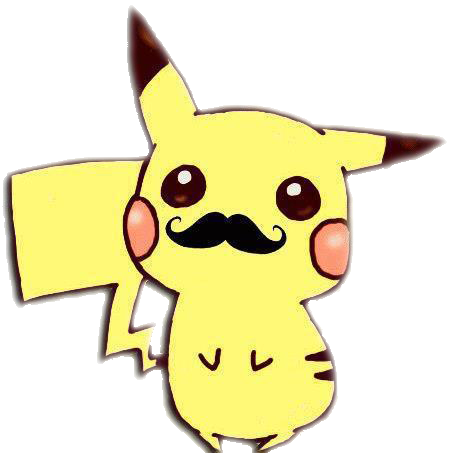Post by ruhaimaromana22 on Nov 6, 2024 2:07:01 GMT -5
Fedor has a business — a website for finding inexpensive tours. Five years ago, Fedor convinced tour operators to cooperate and post their offers with him in a heated argument. He added a cost calculator and a module for searching tours by parameters to the website. Even then, you could fill out an application and contract online on the website. This is how Fedor bypassed slow travel agencies with their call centers and “your important calls to us.” Everything was going great: there were more people willing to search and book tours online than those who wanted to call agencies and come to the office 2-3 times. But then the world turned upside down.
The euro was growing, sanctions were scary, tour social media marketing service were going down the drain. Giant portals for booking hotels and airline tickets appeared, their ads were everywhere. And then suddenly tourists started renting private apartments and houses from each other, bypassing hotels, and even from mobile phones.
Fedor's marketers squealed that the site was losing leads: someone was abandoning the tour search halfway through, and the new audience was leaving after a couple of clicks. Fedor felt that his business was no longer needed and valuable. Let's help him change.
business differences
Why do some companies sell similar services, but others don’t?
Wildberries recently reported on their "Single's Day" campaign. In one day, the store made 1.3 billion rubles, and 54% of customers placed orders using smartphones. Fedor came across this news, and he noted to himself that he would have ordered a jacket himself, right in the morning, when he was stuck in a traffic jam and had nothing to do. At the same moment, he realized that if customers wanted to book a tour on his website just as quickly, they wouldn't be able to, especially not from a smartphone. But he still didn't understand what had happened.
Business is lagging behind because it is a business, not a person.

We all quickly mastered the Internet, mobile Internet, and then online payments. When we buy something, we get mad if the push notification about the order has not arrived 3 seconds after clicking "Checkout". And when we sit down at our desks, we forget about our experience: we send clients an email two days after the request or turn on the internal robot "we will contact you". It turns out funny: our clients are picky and impatient, and the sellers are sluggish.
Business is lagging behind because it believes in the inviolability of innovation
We are used to the fact that a new product is exclusive, it is high-priced and unique. And if we have a new technology, it will provide us with many fat years. But tomorrow we can be knocked off our feet by a wave of cheap analogues. Because someone will figure out how to make our product better and cheaper. Therefore, releasing a memorable product without memorable service and emotional attachment is short-sighted.
Business is lagging behind because it does not take into account new values
In essence, all we are talking about is new values that customers use to measure the need for goods and services. They simply add these values to each product. And even if a product is suitable in price and availability, it may be inferior to another one, which takes half as much time to process, pay for, and deliver.
Values. What are they and how have they changed?
Definition from Wikipedia:
Value is the importance, significance, usefulness, or utility of something. Externally, value appears as a property of an object or phenomenon. However, significance and usefulness are not inherent in them by nature, not simply due to the internal structure of the object itself, but are subjective assessments of specific properties that are involved in the sphere of human social existence, and a person is interested in them or feels a need for them.
Value is a feeling. In words, it would sound like "this is important to me, I need this, I value this highly." Moreover, "necessary and important" can be both something tangible (a new fitness bracelet) and intangible (family, success, personal time). Intangible can be brought closer with the help of tangible (this app will help me better plan my free time). Values live in our heads. And in our heads, a lot has changed over the past 5-7 years. Comfort and speed of service, a convenient way to communicate with companies and a personal attitude have become valuable.
customers pay for the service
Fedor's clients have changed too. They now order clothes and pizza without saying a word. All thanks to smartphones: place an order, pay by card, choose the delivery address - and that's it! And when they contact again, the delivery address is substituted automatically! But when they come to Fedor's website ... In general, you get the idea.
What do customers value now and how can you please them?
Companies still need strong Product, Price, Place, Promotion. And customers still need quality products and services at a minimal price, which are convenient to buy and which they can learn about without effort. This is the classic 4P marketing model. Only the concepts of “Product”, “Price”, “Promotion” and “Place” now have different values embedded in them.
The euro was growing, sanctions were scary, tour social media marketing service were going down the drain. Giant portals for booking hotels and airline tickets appeared, their ads were everywhere. And then suddenly tourists started renting private apartments and houses from each other, bypassing hotels, and even from mobile phones.
Fedor's marketers squealed that the site was losing leads: someone was abandoning the tour search halfway through, and the new audience was leaving after a couple of clicks. Fedor felt that his business was no longer needed and valuable. Let's help him change.
business differences
Why do some companies sell similar services, but others don’t?
Wildberries recently reported on their "Single's Day" campaign. In one day, the store made 1.3 billion rubles, and 54% of customers placed orders using smartphones. Fedor came across this news, and he noted to himself that he would have ordered a jacket himself, right in the morning, when he was stuck in a traffic jam and had nothing to do. At the same moment, he realized that if customers wanted to book a tour on his website just as quickly, they wouldn't be able to, especially not from a smartphone. But he still didn't understand what had happened.
Business is lagging behind because it is a business, not a person.

We all quickly mastered the Internet, mobile Internet, and then online payments. When we buy something, we get mad if the push notification about the order has not arrived 3 seconds after clicking "Checkout". And when we sit down at our desks, we forget about our experience: we send clients an email two days after the request or turn on the internal robot "we will contact you". It turns out funny: our clients are picky and impatient, and the sellers are sluggish.
Business is lagging behind because it believes in the inviolability of innovation
We are used to the fact that a new product is exclusive, it is high-priced and unique. And if we have a new technology, it will provide us with many fat years. But tomorrow we can be knocked off our feet by a wave of cheap analogues. Because someone will figure out how to make our product better and cheaper. Therefore, releasing a memorable product without memorable service and emotional attachment is short-sighted.
Business is lagging behind because it does not take into account new values
In essence, all we are talking about is new values that customers use to measure the need for goods and services. They simply add these values to each product. And even if a product is suitable in price and availability, it may be inferior to another one, which takes half as much time to process, pay for, and deliver.
Values. What are they and how have they changed?
Definition from Wikipedia:
Value is the importance, significance, usefulness, or utility of something. Externally, value appears as a property of an object or phenomenon. However, significance and usefulness are not inherent in them by nature, not simply due to the internal structure of the object itself, but are subjective assessments of specific properties that are involved in the sphere of human social existence, and a person is interested in them or feels a need for them.
Value is a feeling. In words, it would sound like "this is important to me, I need this, I value this highly." Moreover, "necessary and important" can be both something tangible (a new fitness bracelet) and intangible (family, success, personal time). Intangible can be brought closer with the help of tangible (this app will help me better plan my free time). Values live in our heads. And in our heads, a lot has changed over the past 5-7 years. Comfort and speed of service, a convenient way to communicate with companies and a personal attitude have become valuable.
customers pay for the service
Fedor's clients have changed too. They now order clothes and pizza without saying a word. All thanks to smartphones: place an order, pay by card, choose the delivery address - and that's it! And when they contact again, the delivery address is substituted automatically! But when they come to Fedor's website ... In general, you get the idea.
What do customers value now and how can you please them?
Companies still need strong Product, Price, Place, Promotion. And customers still need quality products and services at a minimal price, which are convenient to buy and which they can learn about without effort. This is the classic 4P marketing model. Only the concepts of “Product”, “Price”, “Promotion” and “Place” now have different values embedded in them.






